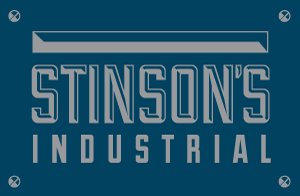PVC& CPVC Piping
PVC & CPVC Piping
PVC & CPVC piping are top choices for plumbing system installations and modifications. They are durable, safe, and cost less than copper or iron piping. There are differences between the two piping systems that make each a better choice for specific installations.
What is PVC Pipe?
PVC (polyvinyl chloride) pipes are plastic pipes used for various types of sewage, drainage, and water installations. The pipe’s plastic contains stabilizers that prevent degradation and oxidation, making the product highly durable.
You can get it in white or dark gray colors, and as a rigid or flexible pipe. It doesn’t leach chemicals when used properly.
What is CPVC Pipe?
CPVC is an advanced form of PVC plastic. It is a thermoplastic made by chlorinating polyvinyl chloride resin. Like PVC piping, CPVC piping is resistant to degradation and highly durable. It is also suitable for various types of water and drainage plumbing installations. Because of the higher quality, it costs more than PVC pipe.
Uses of PVC & CPVC Piping
PVC & CPVC piping are suitable for a variety of commercial and industrial applications, including:
- Housing underground wires
- Drainage, plumbing, and sewage infrastructure
- Farm irrigation systems
- Frames for carports, greenhouses, and raised garden beds
What to Consider Before Installing PVC or CPVC
To make PVC or CPVC piping fit specific installation needs, it might require cutting or melting. When exposed to heat, PVC and CPVC generate toxic fumes. Prevent harming yourself or others by having experienced technicians handle PVC and CPVC piping jobs on your behalf.
Also, installing PVC or CPVC piping requires the use of specific primers and solvent cement. Using the wrong type of solvent cement or primer can lead to a faulty installation. Lastly, constant exposure to the sun can deteriorate both materials. As such, it’s best to install them within walls or the ground to ensure longevity.
Deciding between PVC and CPVC piping for an industrial project can be tricky. While both pipe types are similar, each has its unique benefits. For instance:
- PVC is more affordable than CPVC
- PVC pipes can handle temperatures under 140-degree Fahrenheit. CPVC pipes can handle temperatures up to 200-degree Fahrenheit
- CPVC contains extra chlorine, which prevents bacteria formation, making it better for drinking water installations
Based on these differences, PVC is a better choice when there are budget constraints, while CPVC is more reliable for commercial or industrial installations.
Contact Stinson’s Industrial for PVC & CPVC Piping Installation
Stinson’s Industrial handles a wide variety of industrial and commercial PVC & CPVC piping projects in Memphis. We can complete your PVC or CPVC related project with perfect results and zero harm to you, others, or your property. We have over two decades of experience installing and repairing PVC & CPVC piping for industrial uses in Memphis. Call us today to discuss your piping installation project and find the best material for your needs.
